e8a4ebbf7bc0903bd0c8853f501716f1
Author: Branita

Chinese Communist Party delegation meets Mahinda, Namal
A high-level delegation of the Communist Party of China (CPC), led by International Department Vice Minister Chen Zhou called on Former Sri Lankan President Mahinda Rajapaksa in Colombo on Sunday (15).
Former Minister Pavithra Vanniarachchi, MP Namal Rajapaksa, State Minister Tharaka Balasuriya, and SLPP General Secretary Sagara Kariyawasam attended the meeting as well.
A high-level delegation of the Communist Party of China (CPC), led by International Department Vice Minister Chen Zhou landed at the Bandranaike International Airport, on Saturday (Jan. 14), the Chinese Embassy in Colombo tweeted.
“Chen Zhou, Vice Minister of the International Department, the Communist Party of China Central Committee has arrived at BIA just now and received warmly welcome,” the Chinese Embassy tweet read.
The CPC delegation led by Chen Zhou will remain in Sri Lanka until the 18th of January.
This is the first official visit of the CPC to Sri Lanka after its 20th National Congress.
According to the Chinese Embassy, the CPC delegation is scheduled to meet leaders of the government and political parties of Sri Lanka.
Source: News 1st

Sri Lanka economy to contract 9.2-pct 2022, 4.2-pct 2023: World Bank
Sri Lanka’s economy is estimated to contract 9.2 percent in 2022 and another 4.2 percent in 2023, a World Bank projection has said.
“In Sri Lanka output is estimated to have fallen by 9.2 percent in 2022 as the government ran out of the foreign exchange needed to cover food and fuel imports,” the World Bank said in it January 2023 economic outlook.
“The rupee plummeted, and imports contracted sharply. While the authorities are now implementing a stabilization program, the country faces continuing shortages of food, energy and medical supplies.”
Sri Lanka’s rupee collapsed from 200 to 360 to the US dollar and low wage earners especially in urban areas are finding food too expensive, though there are no ‘shortages’ in the market.
As of January 2023, egg production has collapsed after the Consumer Affairs Authority slammed price controls on eggs forcing farmers to kill their flocks amid high feed prices.
However, rice harvests have improved and farmers are complaining that paddy rice prices are falling.
“The crisis and its repercussions have increased poverty and reversed much of the country’s income gains over the past decade,” the World Bank report said.
Sri Lanka and Pakistan have the worst central banks in South Asia making possible only for the rich to live comfortably and dragging down people who barely move out of poverty back down after each episode of mist-targeting interest rates triggering forex crises, critics say.
There have been calls to tighten laws to restrain the central bank’s open market operations and its ability to mis-target rate but due to a lack of a doctrinal foundation in sound money flexible or discretionary policies are encouraged.
Sri Lanka is to legalize ‘inflation targeting’ without a floating exchange rate called ‘flexible’ inflation targeting shortly.
A separate World Bank survey found that only 2 percent of ‘experts’ knew that forex shortages were caused by central bank mis-targeting of rates while operating a reserve collecting peg.
Related South Asia, Sri Lanka currency crises; only 2-pct know monetary cause: World Bank survey
According to World Bank estimates Sri Lanka’s poverty (measured by the World Bank’s $ 3.65 international poverty line in 2017 Purchasing Power Parity terms) are estimated to have doubled, from 13.1% in 2021 to 25.6% in 2022 following the latest rate flexible exchange rate episode.
The 2020/2022 liquidity injection and flexible exchange rate episode is estimated to have thrown 2.7 million people into poverty. Urban poverty is estimated to have tripled to 15 percent.
In Sri Lanka monetary instability has worsened especially from the fourth quarter of 2014 amid highly discretionary policy operated under ‘flexible’ inflation targeting where previous restraints on domestic operations were removed triggering serial currency crises and output shocks.
Errors in mis-targeting rates with purchases of domestic assets and flooding money markets with excess liquidity (to target middle of the policy corridor up to 2018 and to buy up large volumes of maturing bonds after 2020) were then compensated by depreciation.
Sri Lanka defaulted after fiscal and monetary stimulus unleashed in 2020 to counter a ‘persistent output gap’ from the stabilization policies in the wake of previous two currency crises
“In Sri Lanka, output is expected to contract again in 2023, by 4.2 percent,” the World Bank said.
“The forecast for growth in 2023, like the estimate for 2022, has been revised down owing to ongoing foreign currency shortages, the effects of higher inflation, and policy measures designed to restore macroeconomic stability.”
Sri Lanka was originally expecting an IMF program to be in place and new funds to flow in from January 2023 but the IMF has been delayed due to delays in getting assurances from bilateral creditor on debt re-structuring.
Sri Lanka engages in repeated stabilization programs with the IMF, after mis-targeting rates and triggering external crises and has gone to the IMF 16 times before the default.
The cycle involves enforcing artificially low interest rates with rate cuts based on several claims: an indeterminate portion of inflation seen is not ‘demand driven’, core inflation is low and that the market is wrong.
After the credibility of the exchange rate is lost rates are then hiked to excessive levels, the currency is anyway depreciated, and there is a scramble to hike utility tariff as currency depreciation expands losses of state enterprises.
In earlier currency crises Sri Lanka did not have market access and had lower levels of market debt and managed to avoid default.
Source: Economy Next
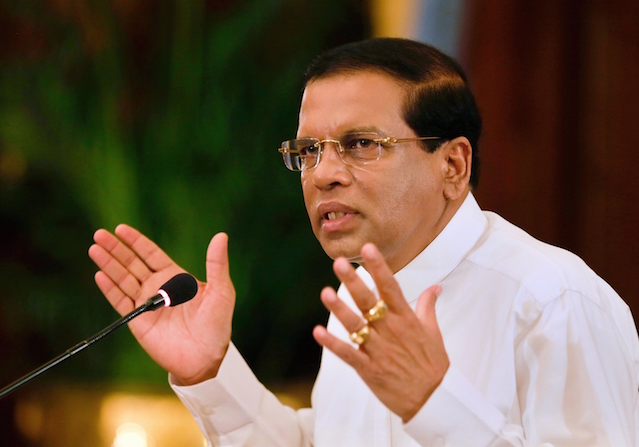
No economy to pay court ordered Easter Sunday compensation – Maithripala Sirisena
Former President Maithripala Sirisena says he has no income or financial standing to pay the Rs. 100 million ordered by the Supreme Court as compensation to Easter Sunday attack victims. However, the Sri Lanka Freedom Party (SLFP) has said Sirisena will bow to the court’s decision and has taken steps to gather the necessary amount.
Sirisena expressing his views on the judgement said he will have to beg while seated in front of the Pettah Bo tree as he has no means to pay Rs. 100 million. He said his friends and acquaintances have decided to collect the money from various sources on his behalf. Sirisena made these comments while attending a party event in Nittambuwa yesterday.
He said while the law must be respected, he had reiterated on many occasions that information pertaining to an impending attack was never conveyed to him by officials. “In the 85-page judgement it is evident that no official had warned me,” he said.
Sirisena claimed he submitted his assets declaration to the parliament every year after becoming President and it shows he is unable to pay the ordered compensation amount. He said he is being blamed for the failures of the officials despite never receiving any information of an attack and has now been asked to pay compensation to victims.
Source: Asian Mirror
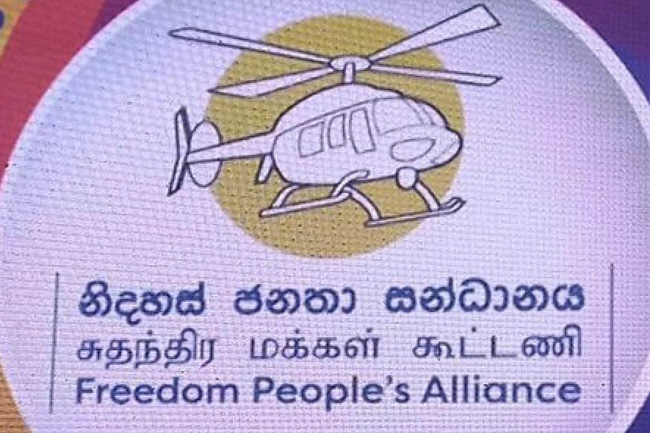
Special executive committee meeting of Freedom People’s Alliance today
A special executive committee meeting of the newly-formed coalition, ‘Nidahas Janatha Sandhanaya’ (Freedom People’s Alliance), is scheduled to be held today (Jan. 16).
The new alliance was ceremonially launched on January 11, with the combined participation of 12 different political parties including the political parties representing the ‘Uttara Lanka Sabhagaya’ (Supreme Lanka Coalition) and Sri Lanka Freedom Party (SLFP).
Accordingly, political sources said that the executive committee meeting of the new alliance will be held at 06.00 p.m. this evening at the SLFP headquarters.
It is reported that a final agreement will be reached between the parties regarding the submission of nominations for the upcoming Local Government (LG) elections.
However, it is also reported that the SLFP is likely to leave the alliance, as a proposal has reportedly been made to contest the LG election alone by leaving the alliance.
Several rounds of discussions have been held among the SLFP representatives in this regard yesterday (Jan. 16), and they have reportedly discussed whether to proceed with the new alliance or not.
Thus, the General Secretary of the SLFP, Dayasiri Jayasekara stated that the relevant decisions taken at the discussions in this regard will be announced by the representatives of the party in the special executive committee meeting of the Freedom People’s Alliance, which will be held today.
Meanwhile, former Western Provincial Council member Gamini Thilakasiri claims that the SLFP will not leave the Freedom People’s Alliance.
Source: Adaderana
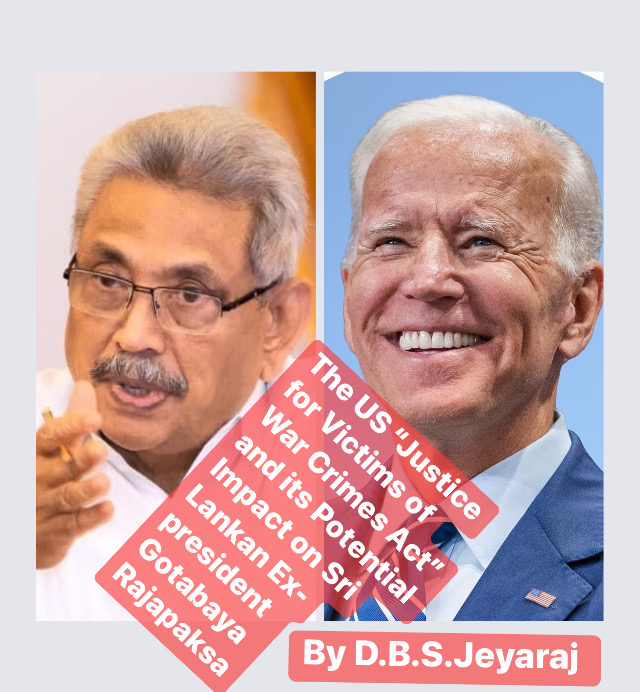
New Bill Signed Into Law by US President Joe Biden may Prevent Ex-Sri Lanka President Gota Rajapaksa from Returning to his Home in California
This law, passed with strong bipartisan support, better aligns the US with her allies and the Geneva Conventions, and gives DOJ the ability to try persons responsible for war crimes in any part of the world should they come to the US.
According to a press release from the White House ,the changes to the “Justice for Victims of War Crimes Act,” have expanded the scope of individuals subject to prosecution for war crimes;
Senators Grassley, Durbin, Graham, and Leahy and Congress Representatives Cicilline and Spartz are reportedly responsible for giving leadership in this regard
The bill, which broadens the Justice Department’s jurisdiction to prosecute war crimes, was passed in the U.S. House of Representatives on Thursday after winning Senate approval on Wednesday.
Known as the Justice for Victims of War Crimes Act, the bill allows the Justice Department to bring war crimes charges against people in the United States, regardless of where the alleged crime occurred.
Current statute only allows for prosecution when an alleged war crime occurs in the United States or when the victim or offender is a U.S. national.
The law is primarily aimed at Russions responsible for alleged war crimes in Ukraine. In fact the Ukrainian lobby in the US strongly canvassed for the law .
However it appears that an unintended consequence of this exercise would be its potential impact on former Sri Lankan President Gotabaya Rajapaksa known as Gota. The Lankan ex- president was earlier a naturalized US citizen holding dual citizenship in Sri Lanka. He served as Defence secretary under his elder brother Mahinda Rajapaksa from 2005 to 2015.
In 2019 Gota was elected as the 7th executive president of Sri Lanka. In July 2022, Gota fled the country and resigned as President due to widespread protests described as the “Aragalaya”(struggle). Thereafter he retuned to Sri Lanka and is living in Colombo with Govt protection
Gota had renounced his US citizenship prior to contesting the Sri Lankan presidential elections to be eligible to contest. His only son daughter in law and grand daughter are all US citizens living in California. Gota’s spouse too is a US citizen
According to various media reports Gota has been trying to return to the US and be reunited with family by staying permanently in the US. However reports say there is no chance of Gota getting a US green card.Even a visitors visa has been refused state media reports
Meanwhile some cases have been filed in US courts by victims of alleged Human rights violations and war crimes that took place under Gota’s watch as Defence secretary. Furthermore Canada -US neighbour and ally-has sanctioned him for alleged acts of omission and commission as President
Under these circumstances there seems very little chance of Gota ever getting a visa to enter the US. But now with the new US law, Gota would be extremely vulnerable on US soil even if he does gain entry. The strengthened US law enables the US dept of Justice to take action against any alleged offender on behalf of war crimes victims regardless of him or her being a foreign national. Also victims can seek justice for war crimes committed in any part of the world
Thus Gota runs the risk of being targeted judicially by his alleged victims if ever he is on US soil. Given the large number of alleged victims in North America and the support given by Human rights organizations, the chances of action being taken against Gota under the US Justice for Victims of War Crimes Act.
This places Gota in a very difficult position. Even if he achieves his dream of returning to the US,it may turn into the nightmare of being prosecuted and possibly convicted under the US Justice for Victims of War Crimes Act. Canada’s sanctions have increased this possibility.
What then will Gota do?
Source: D.B.S.Jeyaraj
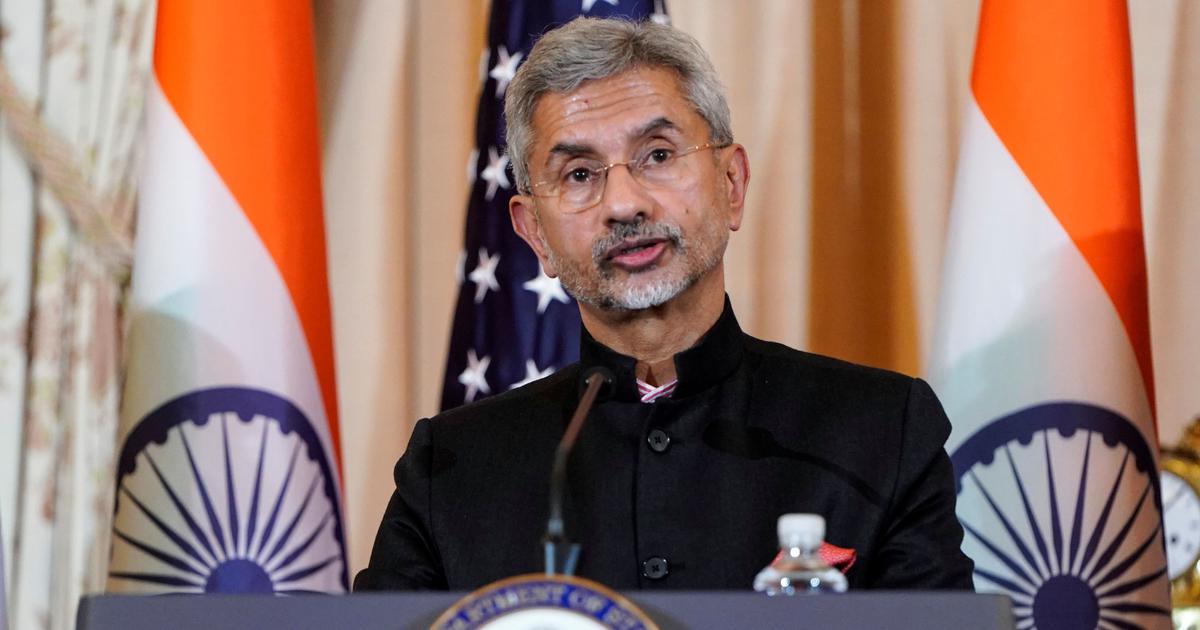
Ahead of Jaishankar’s visit, Sri Lanka Prez assures to fully implement 13A
Ahead of visit by India’s External Affairs Minister S. Jaishankar to Sri Lanka this week, President Ranil Wickremesinghe has assured to fully implement the India-brokered 13th Amendment to the Constitution.
Wickremesinghe said that the 13th Amendment, which was proposed to devolve power and solve the ethnic problem between the majority Sinhalese and the minority Tamils, would be implemented not only in the war-ravaged North but in the Sinhala majority South as well.
The Sri Lankan President made the remarks while participating at the National Thai Pongal Festival held at northern city of Jaffna on Sunday.
He announced that a statement on the government’s steps toward the reconciliation will be made public in February after discussing with the political leaders next week.
Wickremesinghe also assured that the Truth and Reconciliation Commission’s work will be accelerated in order to provide relief to the families of those disappeared.
Following the intervention of India in 1987, under the Indo-Lanka Peace Accord, 13th Amendment was introduced to the Sri Lankan Constitution.
Signed between the then Indian Prime Minister Rajiv Gandhi and the Sri Lanka’s former President J.R. Jayawardene, the accord aimed at solving the ethnic conflict which had developed to a bloody war between the Liberation Tigers of Tamil Eelam (LTTE), which was fighting for a separate land, and the Sri Lanka’s military.
The accord was signed to find solution to the ethnic crisis by devolving political powers to the Tamil dominated northern and eastern provinces in the country. However, under the 13th Amendment, the Provincial Council (PC) system – a power sharing arrangement dividing the country to nine provinces including the Sinhala majority areas – was introduced. The PC system, once fully implemented, would have the right to self-govern over areas such as land, health, agriculture, education, housing and police.
The majority Sinhala extremist parties have been strongly opposing the 13A specially sharing powers like police from the Centre.
India has been urging Sri Lanka to implement the 13A especially since the end of civil war in 2009 and this was reiterated by the External Affairs Minister S. Jaishankar when he visited Sri Lanka in 2021.
Source: Business Standard
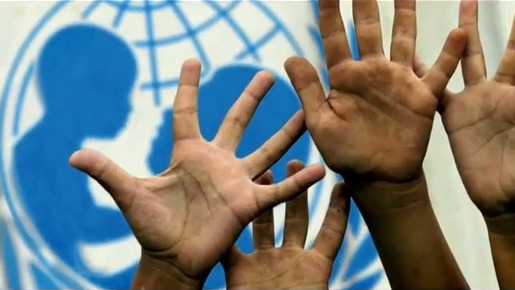
Sri Lanka’s children go hungry as food prices soar
Nitisha cannot play as much as she used to.
The three-year-old is losing weight and complains of leg pains and weakness. The doctor’s diagnosis is clear – Nitisha is underfed and malnourished.
But the treatment suggested is difficult to come by for her family – wholesome meals.
Like many people in Sri Lanka, this family from a tea estate village in Hanthana, in the centre of the country, have seen their finances collapse.
“We manage two meals a day and it’s the same thing – rice with potatoes or lentils. We can’t afford anything else,” says Harshini, Nitisha’s mother. For weeks, the family has not had milk or eggs, she added.
Harshini’s younger daughter – just a month old – was also born underweight. The baby lacks thyroxine, a key growth hormone. The child joins the growing list of infants born with low birth weight – a direct impact of depleting gestational nutrition.
Food has been at the centre of Sri Lanka’s economic crisis. Incomes are shrinking and food prices soaring. Families are forced to skip meals and go hungry.
Many children in Nitisha’s village are becoming ill more often now. Doctors in the region say they are seeing more younger patients who are not getting enough to eat.
“Effects of malnourishment takes time to show,” according to one doctor who asked not to be identified. “Currently most underfed children are using the stored reserves in the body, but a continued nutrition insufficiency would have long term impact.”
UNICEF estimates approximately 56,000 children in the country are suffering from severe acute malnutrition.
Around a third of Sri Lankan households do not have a secure source of food and almost 70% are reducing meal sizes, according to the latest World Food Program figures.
Malnutrition and mothers
In Hanthana, 24-year-old Kanchana is in her fourth month of pregnancy and is expecting twins.
“With the twins I often get hungry, so I eat rice. Fish, eggs, fruits is better but expensive. We have to choose between paying for the tests and medicines or buying expensive food.”
In another village a few kilometres away, we met Devi. She is pregnant with her second child but is severely anaemic and underweight. Options to improve her health are limited – a rice meal and free vitamin supplements from the government clinic.
“I wanted my second pregnancy to be healthier, but this is worse. Doctor says my child’s development will be affected if I don’t eat well.”
The situation is precarious. The BBC spoke to 10 pregnant women in the area. Everyone was looking for assistance to go about their daily life. A government programme providing nutritional packets for pregnant women was suspended last year due to a lack of funds.
It restarted last month, but only a few have received the benefit.
“Many of us have applied for it, but almost half my pregnancy period is over and I haven’t received even one packet,” Devi said.
Christian Skoog, Unicef’s country representative in Sri Lanka, said: “The mothers are not as nourished or as well-fed as they were before. It was already an issue, and it has gotten worse. Low birth weight is a big issue in Sri Lanka because women do not get enough nutrition during pregnancy or during gestation.”
Hungry school children
“Most of these children, from primary grades, were coming to school without eating anything,” according to Anoma Sriyangi Dharmawardhane, Vice Principal of Horawala Maha Vidyalaya in Mathugama in Southern Sri Lanka. “Daily, at least 20-25 children were fainting during school assembly three to four months ago”.
The school started offering porridge and a midday meal programme with support of parents who volunteered to cook. It relies on donations to continue the program.
Community kitchens and food handouts like these are helping to fill the gap in parts of Sri Lanka, but still many children are going hungry.
“At least 20% of children get no breakfast and go to school [on an] empty stomach,” according to S Visvalingam, President of the Food First Information & Action Network (FIAN), Sri Lanka.
For the last six months, FIAN has been organising food programmes for primary and secondary school children.
Mr Visvalingam said more students are dropping out of school, particularly in the worst-affected tea plantations areas in north and east Sri Lanka.
“These school food programmes, an assured meal a day, are helping get these children back to schools,” he said.
“The food programmes are helping, saving lives and preventing things from getting worse. But it is still a stop-gap measure,” said Mr Skoog.
After initially denying it, Sri Lankan government officials have acknowledged the growing crisis of acute malnutrition. Recent data from the health ministry’s family health bureau showed stunting, low height for age, wasting and low weight-for-height among children has gone up significantly in the last one year.
In October, the government said it would double its initiative to give out free lunches at school and hand out supplements for toddlers.
However, Mr Visvalingam warns that Sri Lanka’s problems are likely to get worse before they get better.
“I don’t think [the] financial crisis can be resolved in the short term, and through this period the problem of nutrition is only going to get worse,” he said.
Source: BBC

IMF’s Georgieva to press for quicker action on debt relief with China
International Monetary Fund Managing Director Kristalina Georgieva said on Thursday that she will travel to Beijing next week with heads of other international institutions to press for quicker action on debt relief for poor and developing countries.
The meetings with the country’s leadership will focus on China’s economic, COVID-19 and debt relief policies and will include officials from China Development Bank and the Export-Import Bank of China, the IMF said.
“This is the first time, hopefully, we will be able to sit together and discuss the very pressing issues that China, and the world are faced with,” Georgieva told the Reuters NEXT conference.
Georgieva said that during the Beijing meetings she intends to discuss ways to accelerate China’s participation in debt relief for poor and developing countries as the world’s largest official bilateral creditor.
“I am very hopeful that when we have a chance next week to discuss these issues, we will continue on a path of finding better solutions and strengthening the capacity of the common framework to deliver,” she said, referring to G20 countries’ slow-to-launch common debt restructuring framework.
World Bank President David Malpass told the conference that he would join the discussions in Beijing, along with officials from the World Trade Organization, Organization for Economic Cooperation and Development and others.
Georgieva and Malpass have both called for reforms of the common framework to offer heavily indebted countries a freeze in debt service payments when they apply for debt relief and clearer timelines for reaching agreement on debt treatments.
Asked if China’s slowing growth would limit its appetite for agreeing to debt reductions, Georgieva said she hoped that China would act out of “enlightened self-interest” and strive to prevent debt issues in developing countries from deepening and spilling over to a global debt crisis. Such a crisis would inflict pain on borrowing countries, but would also negatively affect creditor countries, especially China, she said.
China’s COVID-19 restrictions and turmoil in its vast property sector have brought China’s projected growth rate back to 3.2% for next year — barely above global averages and a phenomenon not seen during the past 40 years, she said.
“We have relied on China for a significant increase in global growth,” Georgieva said. “Some 35% to 40% of global growth used to come from China’s growth and this is not the case now, and it’s not going to be the case next year.”
Source: News 1st
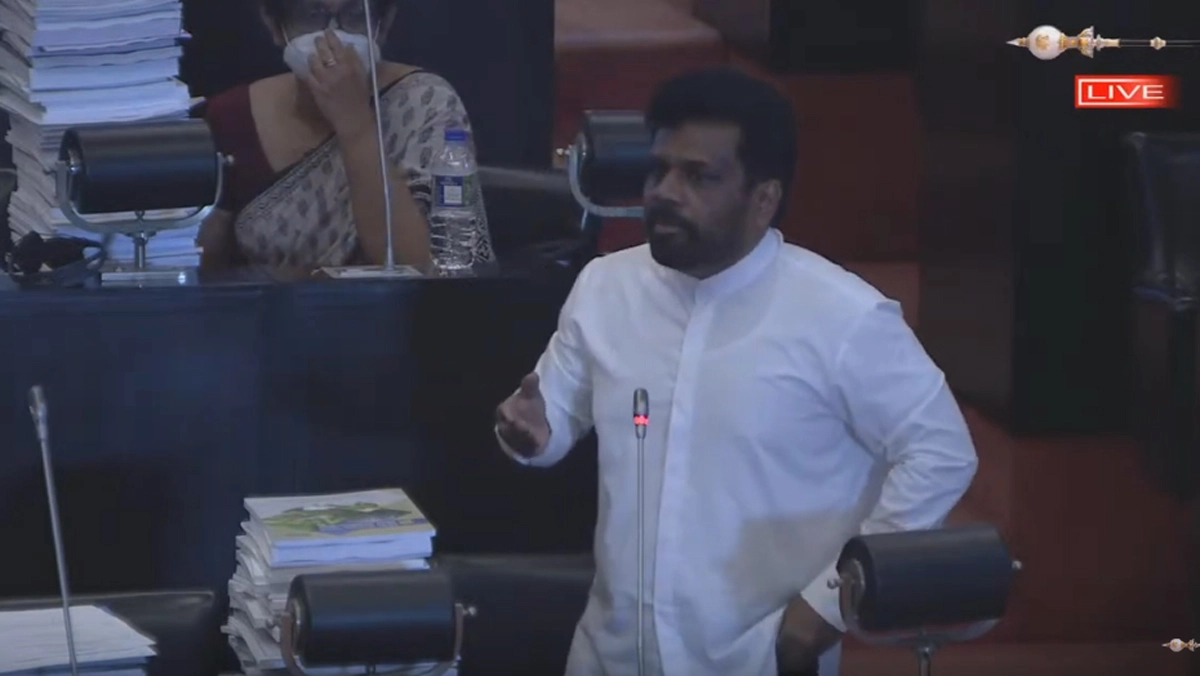
Sri Lanka opposition MP suggests election commission behind local govt polls delay
Sri Lanka opposition legislator Anura Kumara Dissanayake suggested in parliament that the Election Commission, an independent body, and its chairman are conspiring with the government to delay the local government elections.
Speaking in parliament on Friday December 02, Dissanayake said that, as local government bodies should begin their sessions before March 20 next year, the Election Commission (EC) must publish a gazette calling nominations by late December or early January.
“The EC already has the authority to do this. I noticed that they had sought the advice of the Attorney General about some matters. They already have the authority. There is no need at all to seek the AG’s advice,” he said.
The National People’s Power (NPP) leader claimed that a conspiracy is afoot, with the possible participation of the commission.
“The EC can publish the gazette even tomorrow. It is clear that the EC is involved in some underhand conspiracy,” he said.
“The President must announce that the government will not be taking any decision that will violate the EC’s powers to hold the local government elections. The commission is looking at the government for a signal. It is looking at the government’s pulse,” he said.
The MP also suggested Election Commissioner Nimal Punchihewa’s impartiality is not guaranteed.
“We know where Mr Punchihewa worked before and at what party office. We know what chairmanship he held and what government and persons he worked with closely. He’s not an independent person,” claimed Dissanayake.
“So we have a reasonable suspicion that the EC and Punchihewa in particular are behind a conspiracy to delay the election,” he said.
Sri Lanka’s opposition parties and some civil society groups have been demanding an election — any election — banking on the eroded popularity of the once unbeatable Sri Lanka Podujana Peramuna, which critics say is now clinging to power and hiding behind President Ranil Wickremesinghe’s executive powers.
President Wickremesinghe recently told parliament that he has no plans to dissolve parliament anytime soon, which means a general election is unlikely for at least two more years.
Source: Economy Next

